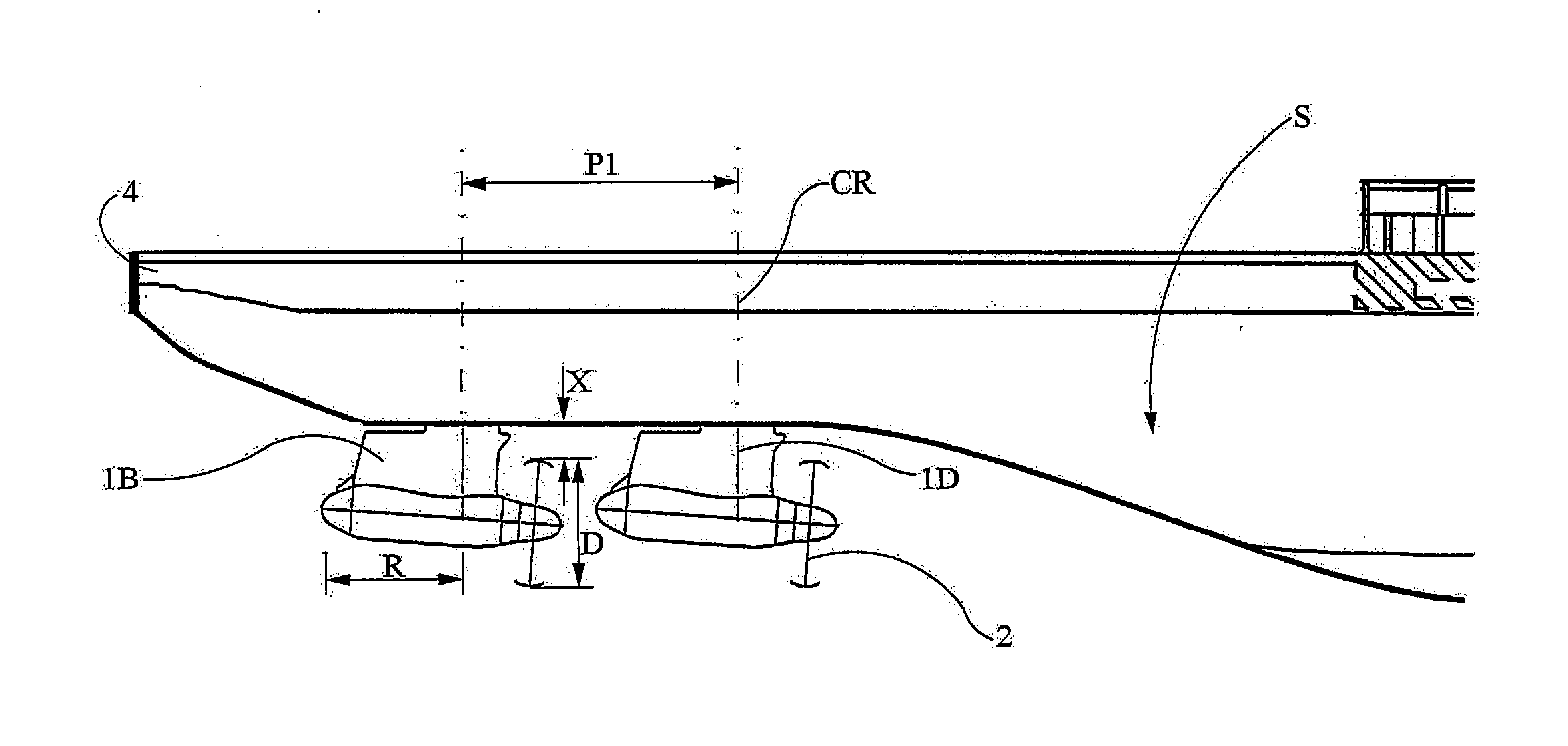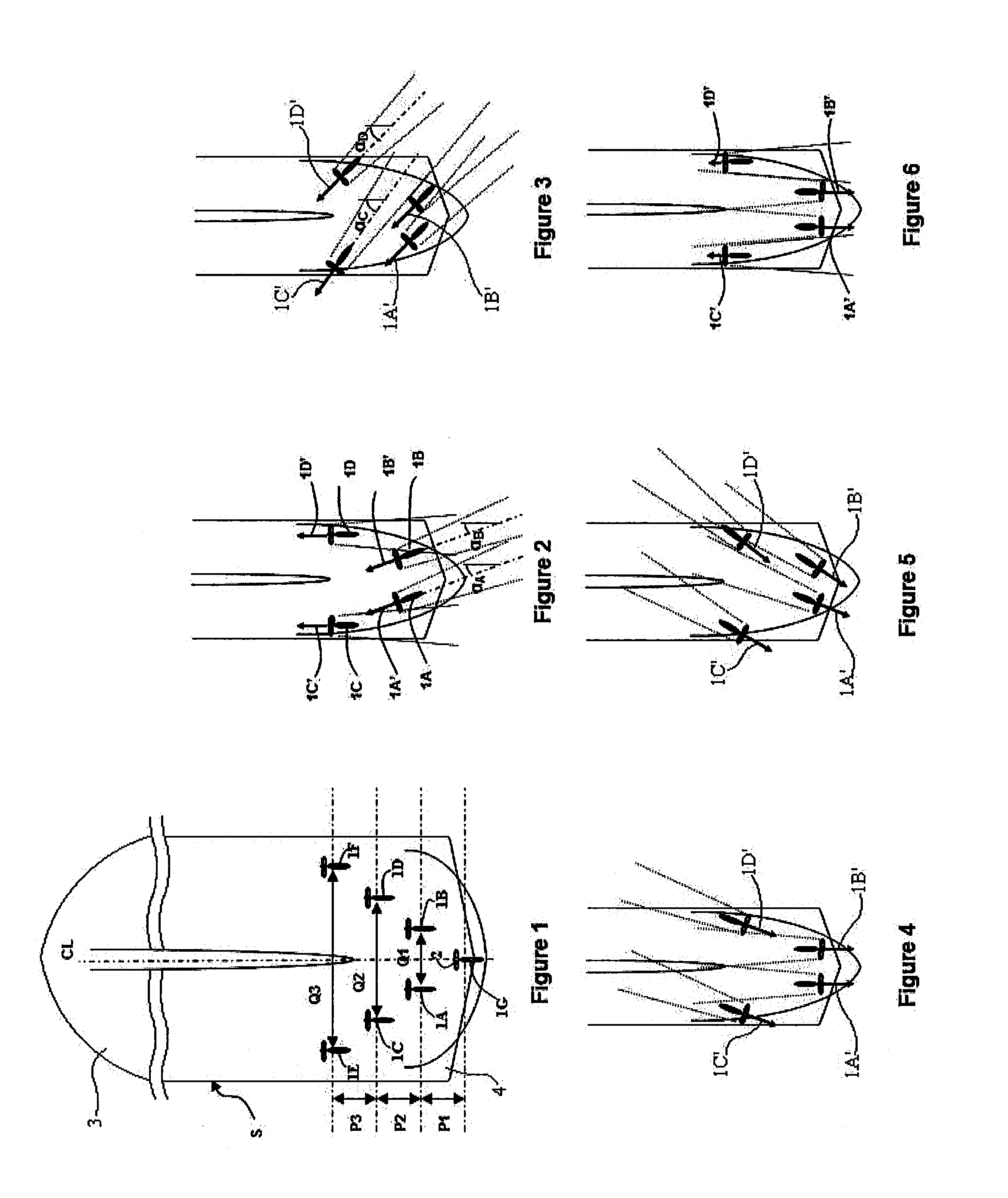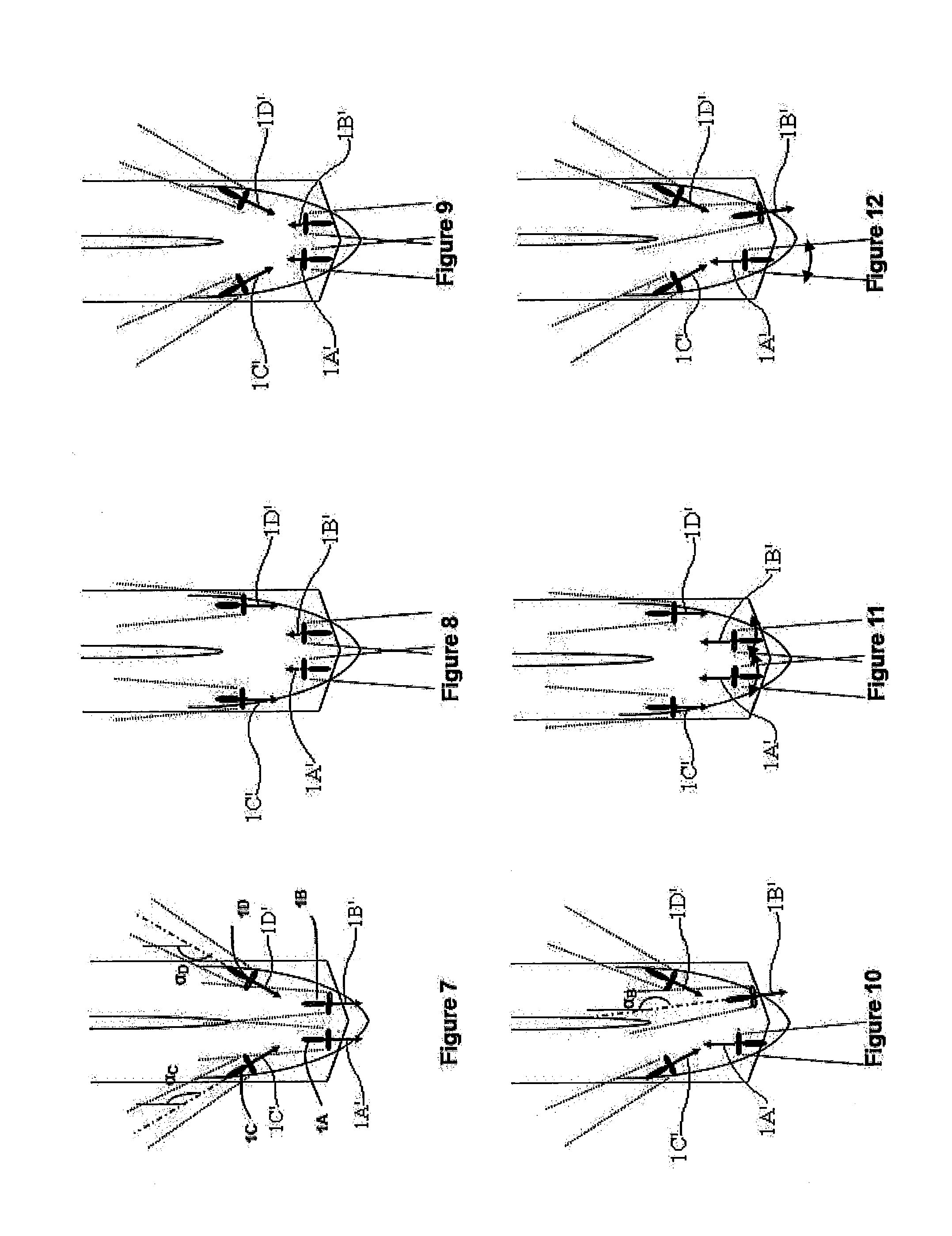Propulsor arrangement for a marine vessel and a marine vessel constructed with this type of propulsor arrangement
a propulsor and marine technology, which is applied in the field of propulsor arrangement for marine vessels and marine vessels constructed with this type of propulsor arrangement, can solve the problems of limited power, limited size of azimuthing propulsor, and limit the availability of large ice-heavy azimuthing propulsors, so as to reduce the stress on the propeller and reduce the stress on the unit structure. , the effect of less interaction
- Summary
- Abstract
- Description
- Claims
- Application Information
AI Technical Summary
Benefits of technology
Problems solved by technology
Method used
Image
Examples
example 1
[0059]When operating in heavy ice with a single or twin propulsor arrangement, especially during ice milling with a DAS, there is a risk that the propellers get stuck in the ice. To break loose from such a situation it is required that the propulsors are heavily over-dimensioned with regard to available shaft torque and / or azimuthing torque. In a multiple propulsor arrangement the risk that all propulsors should get stuck at the same time is negligible, so in case the aftmost propulsor(s) get stuck the others can be used to pull the vessel in direction from the ice so as to release the aftmost propulsors from the ice.
[0060]When using the aftmost propulsors to penetrate a ridge it is possible to balance the astern thrust with the forward propulsors to reduce the risk for the propellers to get stuck and to optimize the penetration speed. In FIG. 6 is shown a situation where the aftmost propulsors are used to penetrate an ice formation while the foremost propulsors are used to control ...
example 2
[0061]It is known that certain types of gas engines, used to motor generators to produce electricity onboard a vessel, are sensitive to load fluctuations, such that if the propeller looses its rpm, while penetrating an ice formation, the power consumption will be reduced very quickly and there is a risk that it could create a blackout onboard. With a multiple configuration of propulsors the load fluctuation, when a propulsor looses its rpm will be smaller as the power on each propulsor is smaller. However it can be further reduced if operating as in FIG. 6. If the rpm on the forward Pod drives is increased when the rpm on the aftmost is reduced, the power fluctuation on the system will also be reduced. This way of controlling the propulsors will have the dual effect of releasing the aftmost propulsors so that they can more quickly restore their rpm.
[0062]It is evident that for the skilled person that the specific method described in the two paragraphs above is not limited to use in ...
example 3
[0063]In FIG. 7 the foremost Pod drives, 1C and 1D, have been turned inwards with angles αc and αD, to transport the ice milled by the aftmost Pod drives 1A and 1B, away from the vessels hull and reduce the friction, without operating in the direct slipstream of the aftmost Pod drives. The reduced friction between the ice and the hull means reduced power to move the vessel. The water wash from the foremost Pod drives, which is directed to the sides of the broken channel, will break the ice on the sides and thus assist to widen the channel. This way of operation can also be used to clean a channel from brash ice, as the forward Pod drives can push the broken ice outwards and below the remaining ice field.
PUM
 Login to View More
Login to View More Abstract
Description
Claims
Application Information
 Login to View More
Login to View More - R&D
- Intellectual Property
- Life Sciences
- Materials
- Tech Scout
- Unparalleled Data Quality
- Higher Quality Content
- 60% Fewer Hallucinations
Browse by: Latest US Patents, China's latest patents, Technical Efficacy Thesaurus, Application Domain, Technology Topic, Popular Technical Reports.
© 2025 PatSnap. All rights reserved.Legal|Privacy policy|Modern Slavery Act Transparency Statement|Sitemap|About US| Contact US: help@patsnap.com



